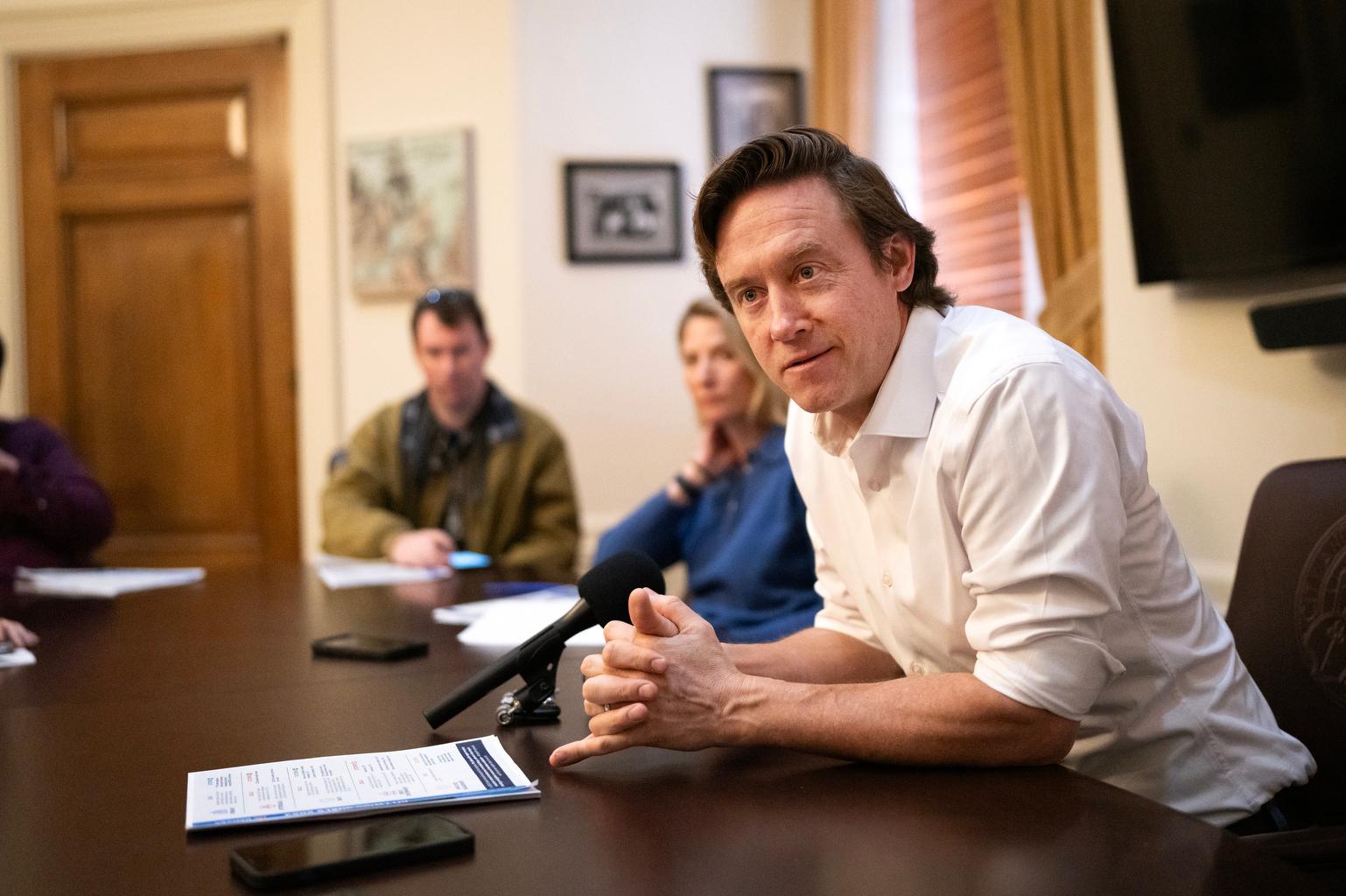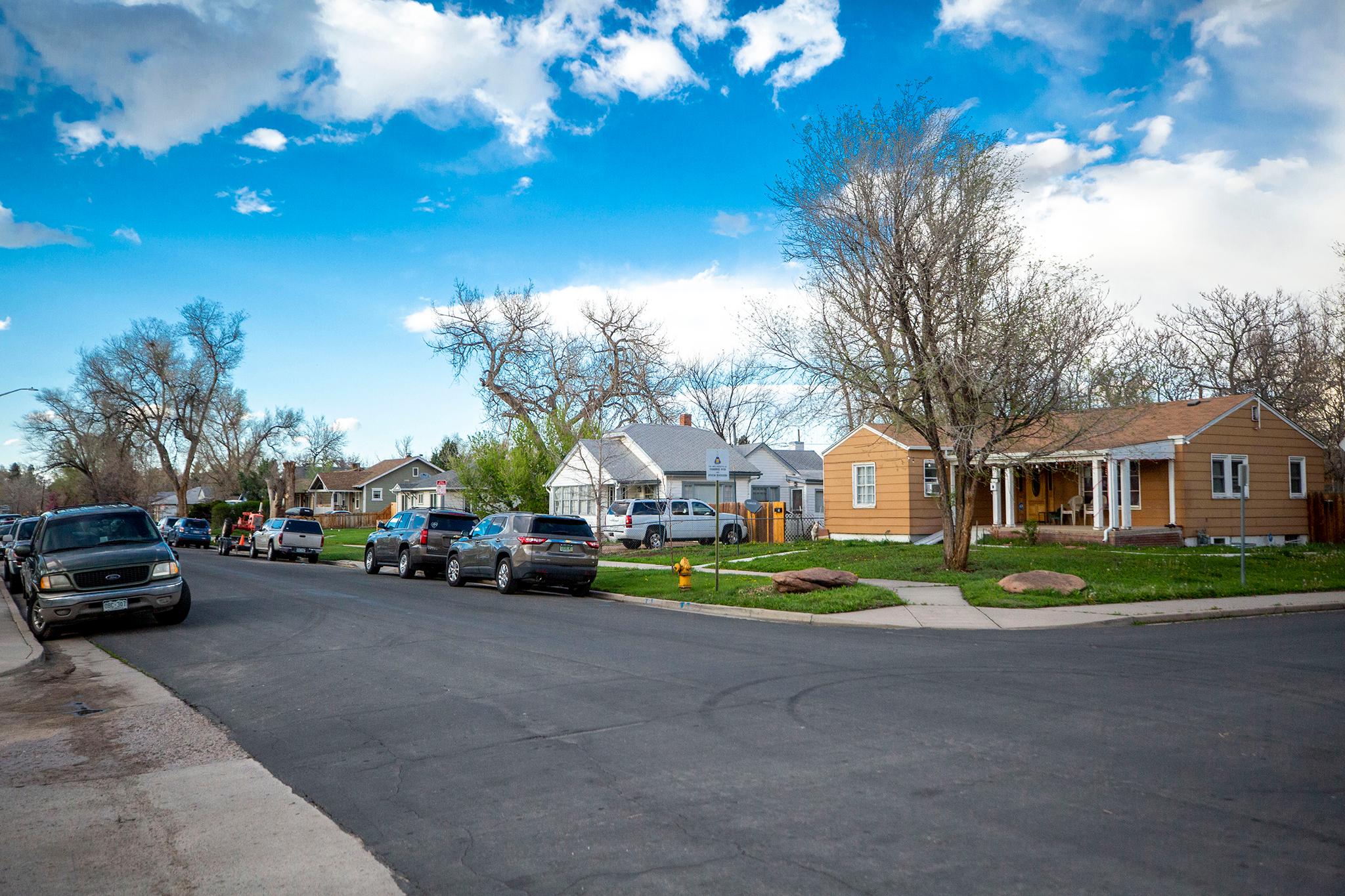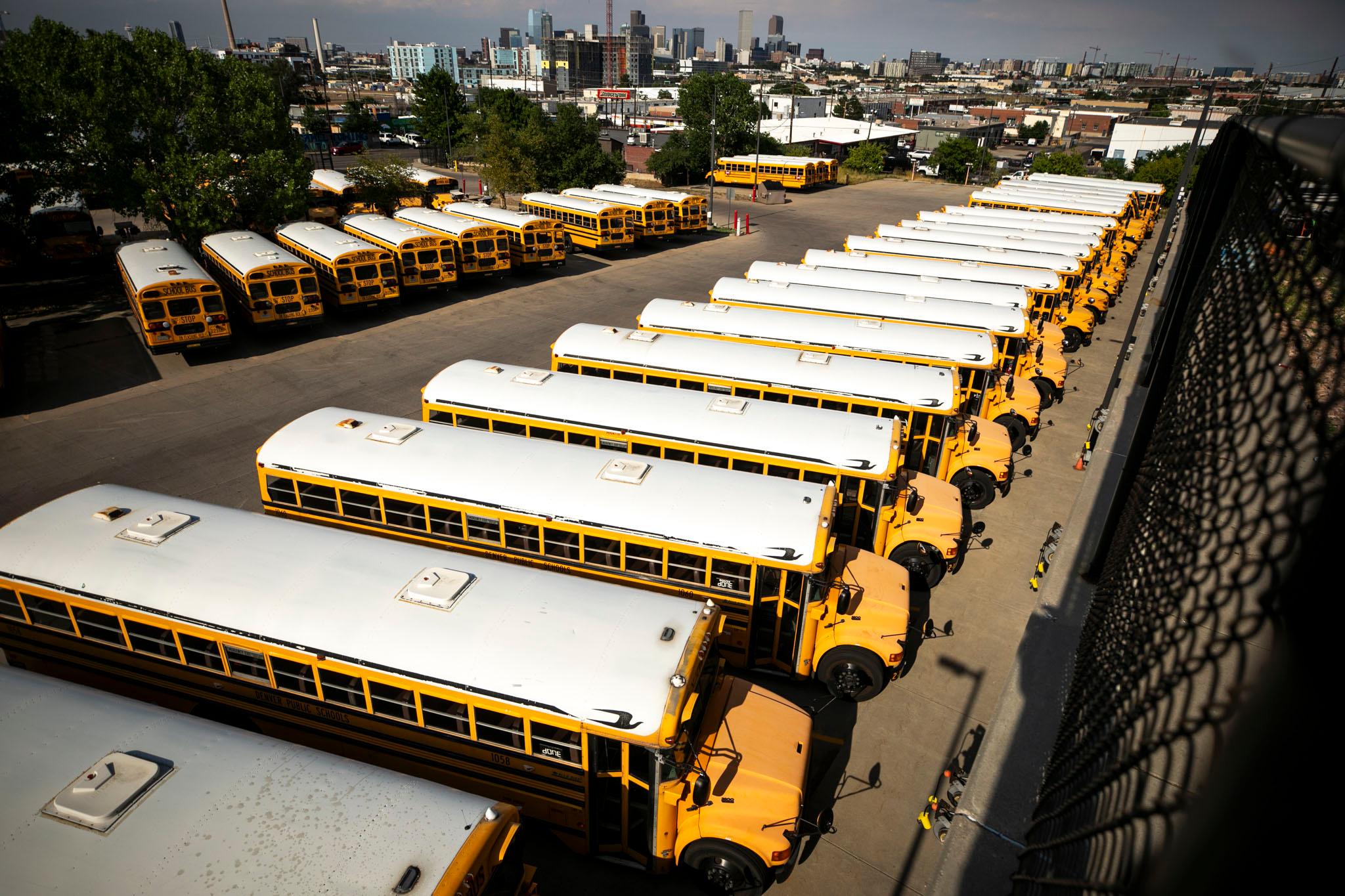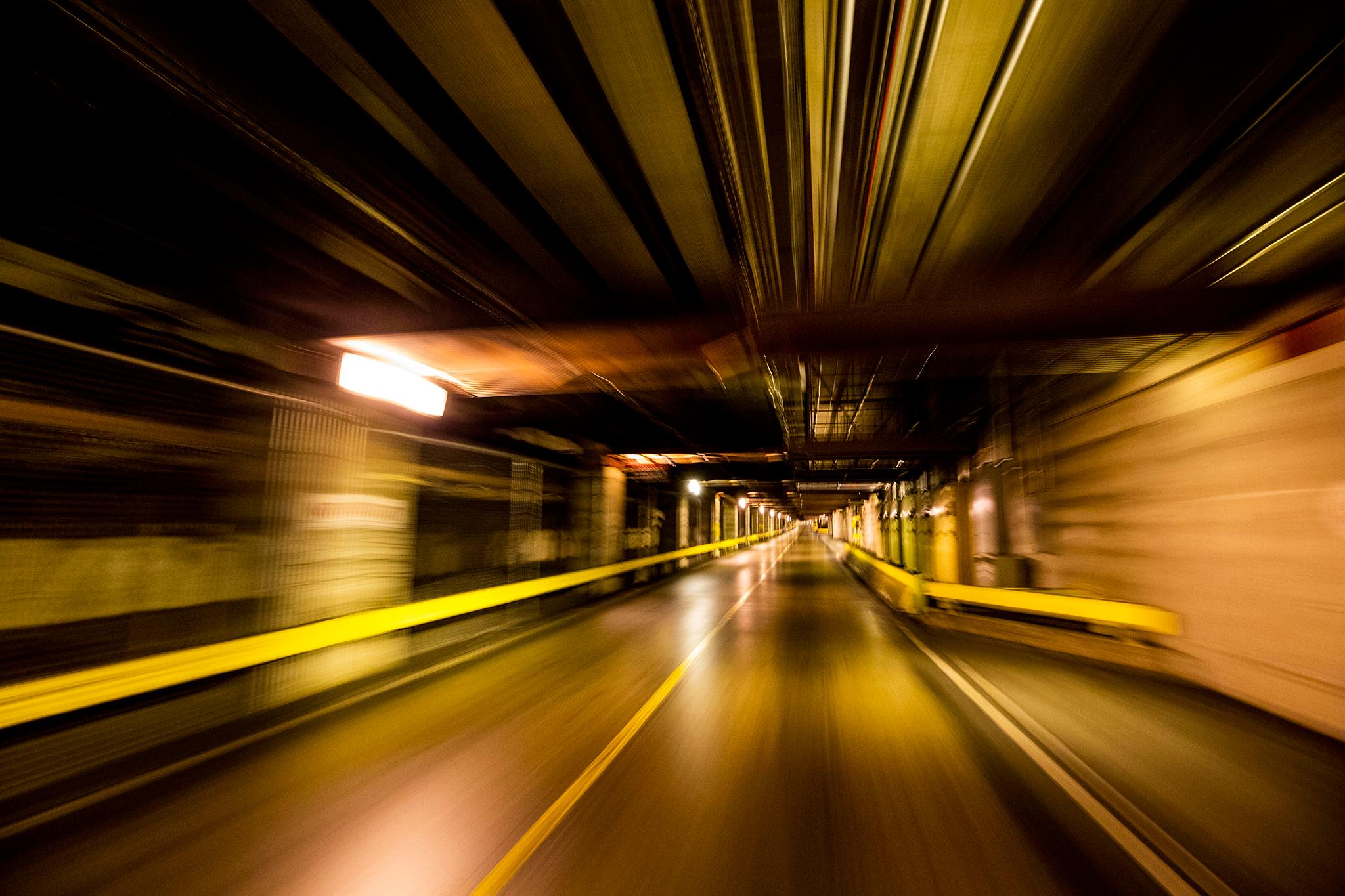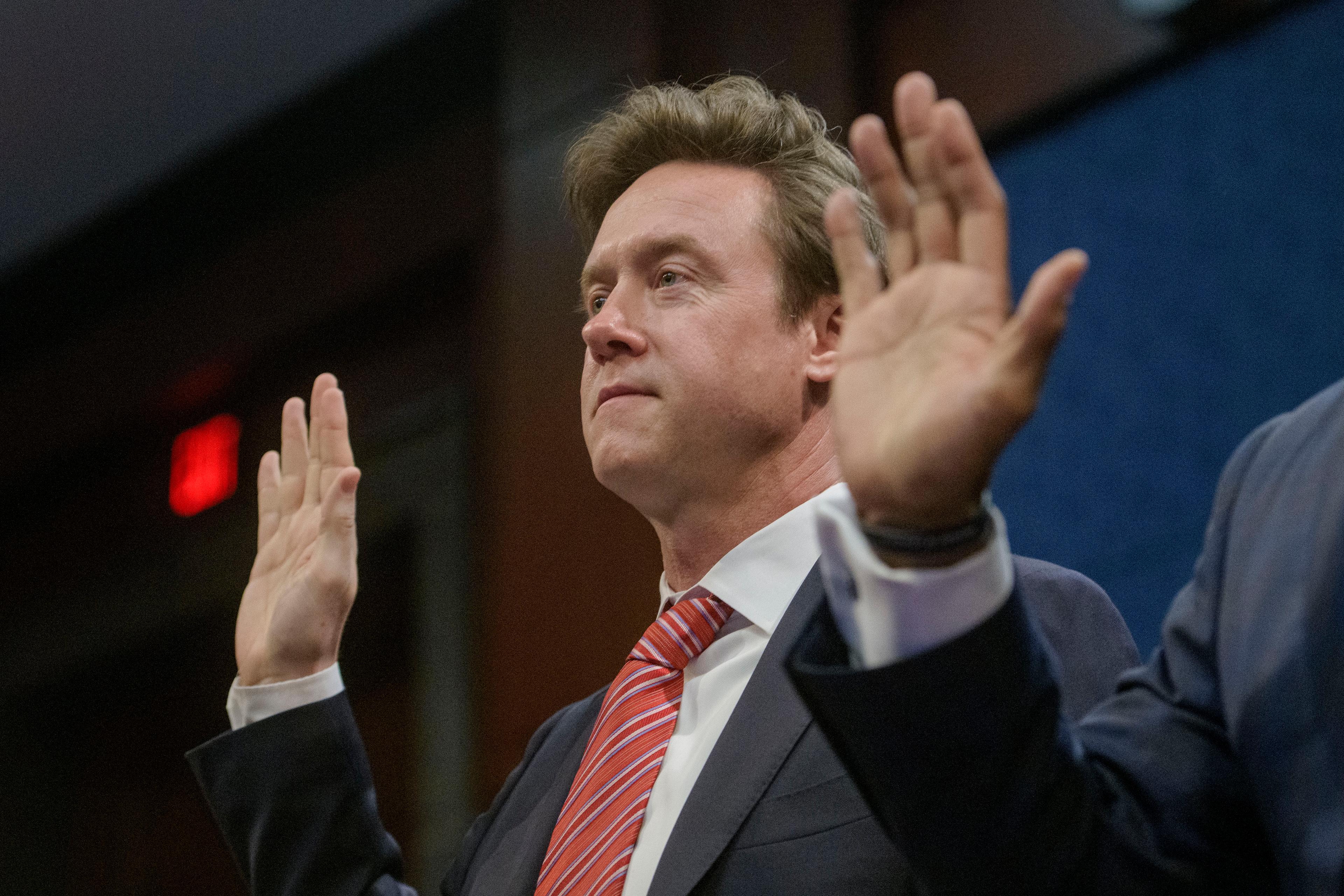Denver Mayor Mike Johnston presented a report card Monday morning to the press in his office, grading his administration’s performance 2024 performance.
What he described as an average “middle-school grade card” showed what the city’s goals were, where his administration met them, and where they missed the mark.
The administration’s year was defined by his attempts to address unsheltered homelessness, boost the downtown Denver economy, make headway on the 16th Street Mall construction project and reduce gun violence.
Johnston acknowledged: There’s still a lot of work to be done.
But the story he told of 2024 in Denver was largely one of success.
- The number of people shot in the city is down 23 percent and gun homicides are down by 25 percent.
- Customer satisfaction with the cops is up more than 15 percent, according to surveys the police conducted about their performance.
- In November, an overwhelming number of downtown voters approved a $570 million loan for the Downtown Development Authority to turn the rest of the city center into what Union Station has become — a “vibrant” place with affordable housing, retail and open space, Johnston said.
- The city created and preserved more than 3,000 units of income-restricted housing.
- By the end of the year, 2,233 people experiencing homelessness on the streets were brought inside since he took office — and 82 percent are still indoors.
- The city hit its goal of expediting the permitting process for residential construction, dropping the time it takes to secure a permit by 37 percent.
- The time it takes to replace recycling, composting and trash bins has dropped by 31 percent.
- More than 200 people dealing with addiction were connected with treatment through his Roads to Recovery program.
The Johnston administration did miss a few goals.
- While the city’s commercial permitting process is 17 percent faster, it still lags behind the goal.
- While the city is completing 90 percent of its solid waste routes, it missed its goal by 3 percent.
- He planned to have a deal over the embattled Park Hill Golf Course secured with Westside Investment Partners by the end of 2024. He missed that deadline.
- His ambitious plan to use a sales tax to fund the creation and preservation of tens of thousands of affordable housing units was squarely rejected by voters in November, leaving him in a tight spot trying to figure out how to create another 3,000 units in 2025 — a goal that’s already shy of the 4,500 a year he says the city actually needs.
What about immigration?
Much of Johnston’s focus in 2024 wound up being redirected by the arrival of thousands of new immigrants, many from Venezuela.
He said the city spent around $45 million on the issue — a number that was a fraction of the $180 million he initially projected.

This year, he plans to spend $12 million on new immigrant support.
“It was a crisis that emerged we had to respond to,” he said. “So it wasn't on our report card of goals. But I think when we look back at it, we feel great about where we've come over the last year.”
And crime?
Denverite reviewed the Denver Police Department’s crime database.
Crime as a whole is slightly down, according to department data.
Meanwhile, drug- and alcohol-related crimes are up far higher than in previous years.
Violent crime has risen slightly to 6,568 incidents
Auto theft has dropped from 2023 to 2024. Theft from motor vehicles has dropped, too.
So what about 2025?
The mayor plans to release this year’s goals on Jan. 29. While he’s not ready to detail those yet, there are a few things he’s willing to talk about.
Johnston anticipates the 16th Street Mall construction wrapping by Memorial Day. Requests for proposals for the $570 million in downtown projects will be open later this month.
A deal on the Park Hill Golf Course should be announced by the end of the month.
Denver had a 2024 goal of improving city-employment engagement by 5 percent on a survey about how things are going under Johnston. Survey results will be released toward the end of January.
The administration is preparing for Donald Trump’s presidency and various possible futures for a city dependent on significant federal funding for its housing initiatives, bus rapid transit projects, and other social services.

After voters shot down the sales tax that would have funded the construction and preservation of tens of thousands of new housing units, Johnston has had to go back to the drawing board to figure out how to fund new housing.
“We have to use public-private partnerships, use public land, and use the ability to do rental subsidies in some units to make them affordable,” he said. “Affordability continues to be a top priority for us.”
He also spoke to why he wants downtown Denver to have more residential space.
“The most safe and active downtown is a busy downtown,” he said. “For any downtown, the busiest downtown is one that’s actually 24 hours a day.”
He also says he’s considering moving the State of the City address that takes place in July to January to align with the city’s fiscal year.
This year, though, he’s keeping it in July.
Editor's note: This article was updated on Jan. 6, 2025 at 5:23 p.m. to correct a statement regarding the number of city workers engaged in a survey. The goal is 5 percent engagement, but the exact number of engaged city workers has not been determined yet.

